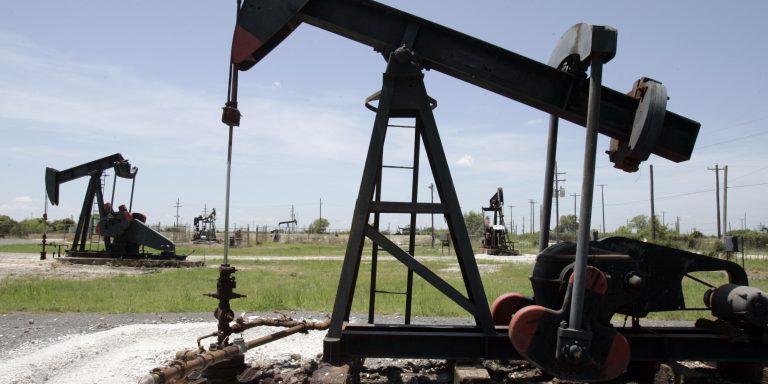INTELBRIEF
February 6, 2018
TSC IntelBrief: Power and Peril at the Pump

- Within months the U.S. is predicted to surpass Saudi Arabia as the world’s second-largest oil producing country and will soon close in on Russia.
- The U.S. is now producing 10 million barrels of crude oil a day, a level not seen since 1970.
- The combination of decreased oil imports and increased natural gas exports provides positive economic and geopolitical leverage for the U.S.
- Regardless of near-term forecasts of production, the U.S. needs to rapidly develop a comprehensive push towards renewable and ecologically sustainable energy as a long-term strategy.
In his first State of the Union address, President Trump declared his administration had ended the ‘war on energy.’ This term is vague but politically potent, suggesting that previous administrations rejected energy independence in favor of environmental concerns. President Trump has rolled back numerous environmental regulations, with the justification being the U.S. needs energy and that such production would not excessively harm the environment—ignoring the fact that damage done by oil spills and contaminated water supplies resulting from fracking can be permanent. The White House stance—that climate change is either not happening or is inconsequential if it is happening—is at odds with all of its allies, but consistent with the administration’s push for vastly increased use of fossil fuels, specifically American coal.
The increase in U.S. carbon-based energy production is truly significant. The shale gas/fracking industry has managed to survive a concerted campaign by Saudi Arabia and Russia to put it out of business since it represents a completely different and substantial supply line of natural gas. While the last three years have been extremely difficult for domestic fracking firms, they have managed to survive by streamlining the process to cap and uncap wells, all the while keeping gas available for exploitation as prices rise. The U.S. now exports liquid natural gas and could be a credible alternative to Russia’s dangerous monopoly on the supply of natural gas to much of Europe. It is difficult to overstate the impact of significantly reducing Russian gas exports to the E.U., which could reduce Russian influence in those countries, while shrinking Russia’s economy.
The increase could also make the U.S. less impelled to act militarily in the Middle East, because turmoil there now will have less impact at the U.S. pump. The last several years have seen dramatic spikes in conflicts and tensions in the oil-rich Middle East, without correspondingly dramatic spikes in oil and gas prices. The U.S. consumer, on average, pays $2.58 per gallon of gasoline—a number that has stayed relatively stable for several years, even as the Middle East descends increasingly into chaos. The recent decrease in prices can be explained in part by Saudi Arabia and Russia flooding the market with excess production to drive down prices and fully drive U.S. producers out of the market. Because the costs of producing U.S. gas and oil are so much cheaper than for the Saudis or Russians, this strategy backfired. However, as yet, the U.S. has shown no noticeable reduction in its military engagements in the Middle East, despite having less oil-based concerns.
A forward-looking country would use the current increase in production to fund a long-term shift towards truly sustainable energy. Instead of putting tariffs on imported solar panels, which the Trump administration recently did, the U.S. should be investing in dramatically increasing the use of solar, to at least reduce household energy consumption. Fracking, while comparatively inexpensive compared to off-shore oil drilling, is incredibly destructive to the environment; it uses immense amounts of water—in regions that need all the water they can get—and that water is then contaminated. It threatens to pollute local underground water supplies as well. Despite claims by the administration, there is no such thing as ‘clean coal’ and the realities of climate change make plans to not only not reduce coal use, but actually increase it, a historically short-sighted move with long-term negative consequences.
The current U.S. energy fortune must be used to shift towards a responsible and sustainable comprehensive energy foundation. This moment in time provides an opportunity for the U.S. to dramatically shift from fossil fuels and reorganize its foreign affairs beyond the lens of oil and supply lines, thereby reducing its military endeavors in the Middle East, which have had devastating consequences both at home and abroad over the last few decades.
For tailored research and analysis, please contact: info@thesoufancenter.org
[video width="960" height="540" mp4="https://thesoufancenter.org/wp-content/uploads/2018/02/Final-Edit-1-125-1.mp4" poster="https://thesoufancenter.org/wp-content/uploads/2018/02/AP_080714017508.jpg"][/video]